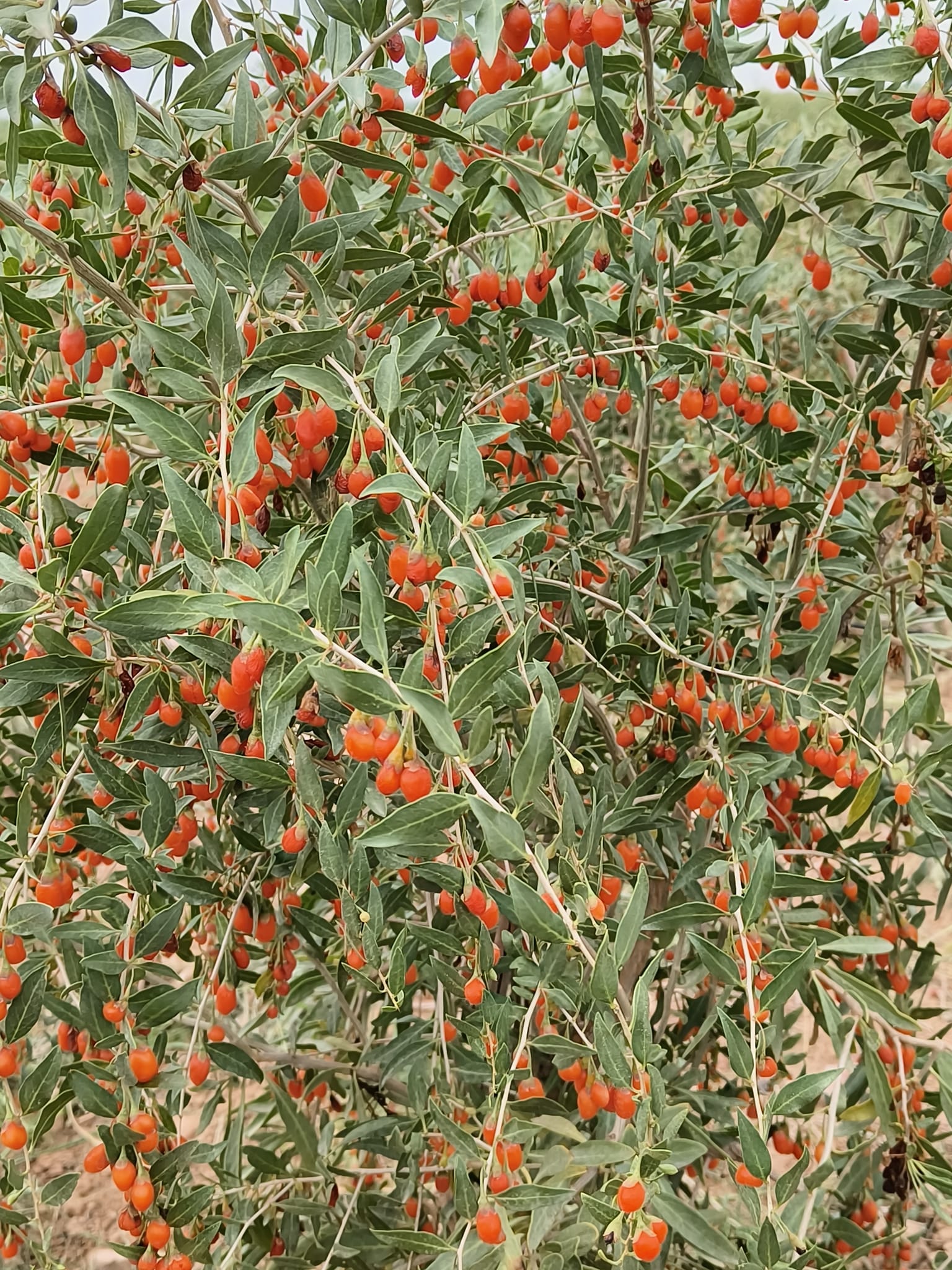41 Deg North
Premium Produce from Inner Mongolia’s Fertile Farmland
41 Degrees North marks the latitude of Inner Mongolia, a region known for its fertile farmland and exceptional produce. The rich soil and ideal climate create the perfect conditions for cultivating high-quality crops, making Inner Mongolia a renowned agricultural hub.

These factors combined make Inner Mongolia an ideal region for growing nutrient-dense, high-quality produce like tomatoes and goji berries. These quality goji berries are used in our products like tomato juice, Qi-Vision, Qi-Power and Qi-Effects to deliver natural vitality and health benefits.
Rich Nutrient Soil
Inner Mongolia has vast grasslands and fertile plains with nutrient-rich soil, particularly in regions along the Yellow River. The alluvial soil, deposited by rivers over millennia, is rich in minerals and organic matter, which are ideal for cultivating a variety of crops, including tomatoes, goji berries, sunflower seeds and maize. The deep, loamy soil retains moisture well, providing a good foundation for plant growth.
Abundant Sunlight
The region enjoys long daylight hours, especially during the summer growing season, providing ample sunlight for crops to photosynthesize efficiently. The extended exposure to sunlight allows crops like tomatoes, goji berries, sunflower seeds and maize to develop rich flavours and high nutrient content.
Pure Water Sources
Inner Mongolia is home to pristine water sources, including rivers, underground springs,and mountain snowmelt. These clean water resources irrigate the farmland, ensuring that crops are not only nourished but also free from the pollution that can plague other agricultural areas.
Cool, Dry Climate
The semi-arid to arid climate of Inner Mongolia, combined with cool temperatures, helps reduce the prevalence of crop diseases and pests. This environment is particularly favourable for growing hardy crops like goji berries and tomatoes, which thrive in cooler climates. The dry air also contributes to better preservation of the nutrients in crops.
Sustainable Farming Practices
Farmers in Inner Mongolia often employ sustainable agricultural techniques passed down through generations. Practices such as crop rotation, organic fertilization, and minimal use of synthetic pesticides help maintain soil fertility and ensure long-term productivity of the land.
Diverse Ecosystems
The region’s diverse landscape, including grasslands, deserts, and mountains, creates microclimates suitable for a wide variety of crops. This natural diversity allows for the cultivation of high-quality fruits and vegetables, particularly those like goji berries, which are well-suited to the unique environmental conditions.

